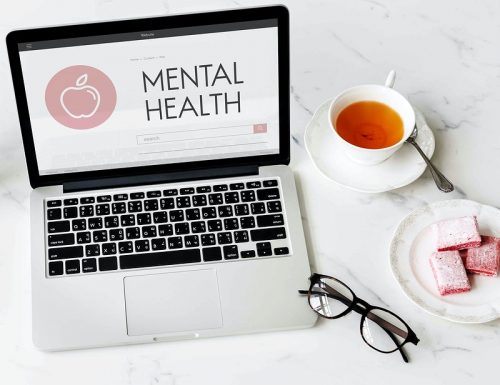Being a parent is a transformative experience. Although it can be overwhelming and exhausting, it is exciting. It is also common to experience anxiety or uncertainty, particularly if you’re a first-time parent. On the other hand, you can be suffering from postpartum depression if you experience intense sadness or loneliness, a significant rapid drop in mood, and continual weeping episodes.

Mood shifts are common in women after giving birth. They appear pleased one minute and begin to cry the next. Even while the infant is asleep, they could have mild depression, difficulty focusing, hunger loss, or difficulty falling asleep. After delivery, these indications typically appear three to four days later and may linger for a few days. Thus, most new moms need as much rest as possible.
What Is Postpartum Depression?
A mental condition known as postpartum depression (PPD) strikes women after giving birth. It’s common for some women to experience the “baby blues” for several weeks following the delivery. Feelings of sadness, unworthiness, emptiness, anxiety, and depression persist for quite a while, then a couple of weeks in postpartum depression.
One may feel depressed, empty, and emotionless, and sometimes it results in mood swings, tiredness, and unhappiness. Postpartum depression mustn’t be taken lightly. Although it’s a severe condition, individuals can recover from it with the use of several appropriate treatment plans from local resources. It’s important for anyone suffering from postpartum depression to understand that they are not alone and that recovery is possible.
After giving birth, postpartum depression may linger for up to a year. One shouldn’t expect to feel “cured” after a year. Discussing the symptoms and course of cognitive behavioral therapy with a healthcare professional is essential. It would be best to tell the truth about the lingering feelings. Consider carefully whether one is capable of handling mental illness and emotional stress. After that, professional experts can suggest continuing therapy to address the problems.
What Signs Of Depression Following Childbirth?
Certain individuals believe they are bad parents for thinking and behaving the way they do or feel guilty about their symptoms. Mental health conditions such as depression following childbirth are very typical. It doesn’t make one a bad person; no one is alone in feeling this way. Take time to consider depression screening.
Some symptoms of postpartum depression include the following:
- Feeling depressed, guilty, hopeless, or unworthy.
- Having constant worries or being anxious.
- A decline of interest in past interests or pastimes.
- A shift in appetite or ceasing to eat.
- A decrease in enthusiasm and energy.
- Having difficulty falling asleep or always wanting to fall asleep.
- Excessive or senseless crying.
- Having trouble focusing or concentrating.
- Suicidal thoughts or the desire to die.
- Not being interested in your infant or experiencing anxiety in their presence.
- Feelings of not wanting the child or the possibility of harming the infant.
How Can Postpartum Depression Be Classified?
Baby Blues
According to the diagnostic and statistical manual, 50% to 75% of women experience the baby blues after giving birth. One will often cry for extended periods without any apparent reason, and feelings of hopelessness and nervousness usually accompany this. Usually starting between one and four days after delivery, the mental disorders usually lasts for the initial week. For some, the health issue typically goes away on its own in two weeks despite the painful experience. Finding emotional support and asking friends, family members, or a significant other for assistance is the finest thing one experiencing postpartum depression can do.
Depression Following childbirth
About 1 in 7 new moms struggle with postpartum depression. It is a far more dangerous health problem than the baby blues. The risk rises to 30% with each pregnancy, especially if one has already had postpartum depression before. Along with emotions of resentment, worry, and helplessness to take care of oneself or the infant, new moms could also experience mood swings, constant weeping, impatience, and exhaustion. The signs and symptoms might develop progressively, potentially up to an entire year after delivery, and can range from moderate to severe. Psychotherapy and antidepressant medications are very successful treatments, even if symptoms can linger for several months.
Postpartum Psychosis
Urgent medical attention is necessary for postpartum psychosis. It is an extreme case of postpartum depression. Just 1 in 1,000 women will have this very uncommon illness after delivery. Usually starting shortly after giving birth, the indications are intense and persist from weeks through months. One can expect symptoms like severe anger, disorientation, major depression, guilt, fatigue, paranoia, insomnia, delusions, hallucinations, impulsiveness, fast speech, or manic episodes. Because postpartum psychosis influences an increased risk of suicide and injury to the unborn child, it needs to be treated medically immediately. Medication, psychotherapy, and hospitalization are typical forms of treatment.
What Are The Symptoms Of Postpartum Depression?
Postpartum depression extends much beyond the “baby blues,” which many women refer to as feeling depressed, feeling empty and moody, or exhausted a few days following the delivery of their child. It can linger for weeks after giving birth. It might cause severe symptoms that make functioning difficult for these new moms.
Postpartum depression manifestation can vary from one person to another and even cause a very challenging daily life for someone dealing with health conditions. Although signs might appear at any point following labor, they usually begin one to three weeks after giving birth. One may feel estranged from their new baby if they suffer from postpartum depression. New moms can feel unloving toward their children and are not to blame for these emotions.
Treatments For Postpartum Depression
After having a baby, postpartum depression can occasionally go away on its own in three months. However, new moms should seek therapy if the condition interferes with their daily activities at any point or if “the blues” persist for more than two weeks. Medication or a combination of psychotherapy and drugs is a helpful treatment option for approximately ninety percent of women with postpartum depression. A support group could be beneficial as well.
In some instances, hospitalization might be required in situations involving severe postpartum depression or postpartum psychosis. Electroconvulsive therapy (ECT) can be utilized as well to treat chronic depression accompanied by overpowering suicidal thoughts, delusions (false beliefs), or hallucinations (false perceptions).
It is advisable to get health care as quickly as possible. The medical issue could deteriorate if it is discovered too late or not at all. Psychologists and other mental health experts have also discovered that an untreated mom’s postpartum disorder can have an impact on offspring. They might be more prone to frequent temper tantrums, instability, poor cognitive development, and sleep difficulties.
Experts from the National Institute of American Psychiatric Association and Disease Control suggest that during a crisis lifeline, interpersonal psychotherapy can help with the severe form of depression and even treat bipolar disorder in adult women. With the help of proper medical treatment, postpartum depression will likely improve month after month as new moms work toward recovery. Be advised that hormonal swings may cause the symptoms to worsen before the menstrual cycle. Thus, it would be best to regularly consider a medical checkup.

Medications For Postpartum Depression
Handling urgent PPD issues like changes in eating and sleeping patterns comes first in the treatment process. For this, antidepressants are typically quite helpful.
If new moms are nursing a baby, the healthcare provider will need to decide carefully which antidepressants to recommend for new mothers to take. Breast milk contains trace quantities of certain antidepressants that are produced. While there is discussion over whether or not some chemicals from the medication truly pose a risk, other prescriptions are more contentious when it comes to nursing due to worries that they could poison the unborn child.
Consult a healthcare professional or mental health provider to see if antidepressant medication is right for the treatment of postpartum depression. If new moms take an antidepressant, they will likely be told to gradually reduce it or keep taking it for a year or longer, depending on their signs and symptoms and medical history, to prevent a relapse.
All drugs have possible dangers. However, the majority of antidepressants don’t pose any significant risks to a growing fetus. However, it is vital to note that when taken early in pregnancy, certain antidepressants, such as selective serotonin reuptake inhibitors like Zoloft, Celexa, Prozac, and Paxil, have been linked to cardiac and cranial abnormalities. Therefore, new moms should be more careful with what drugs they take.
Psychotherapy And Postpartum Depression
Postpartum depression is usually treated with psychotherapy, sometimes known as talk therapy, either on its own or in combination with medications. A doctor can recommend a trained mental health specialist who treats postpartum depression.
A counselor will meet with new moms on a regular schedule for conversations. New parents must respond truthfully when medical professionals inquire about their lives. Anything they say won’t be investigated, and anything they discuss will remain private between them.
The counselor or therapist will teach new moms fresh viewpoints and ideas and how to break bad habits to improve their well-being. Women who suffer from postpartum depression typically receive one of two forms of therapy including:
Treatment Using Cognitive Behavior
New moms and mental health professional therapists pinpoint and then modify the ideas and actions detrimental to their mental well-being.
Interpersonal Therapy
Your therapist assists in resolving issues and gaining a greater understanding of how new moms act in relationships with others.
Postpartum Depression Support Groups
If new moms experience PPD, support groups could be quite beneficial to help them. They might offer helpful advice and suggestions on how to deal with daily stressors. Because postpartum depression can be debilitating and lonesome, it’s critical to take care of oneself, connect with loved ones, and seek assistance when required.
Having supportive relationships has numerous real-world advantages, like knowing others who can give information, counsel, direction, and more concrete support during uncertain times. New moms may feel more secure and comforted by this aspect of social assistance. In-person therapy sessions offer special advantages to people looking for a secure setting in which to talk about their mental health. During these treatment sessions, one can speak candidly and honestly with their therapist or counselor while in a physically neutral setting.

Self-Care
Self-care encourages new moms to keep a positive relationship with themselves. Thus, at-home routines, including maintaining a good diet and eat healthy foods, doing moderate physical activity on a frequent schedule, doing meditation or yoga exercises, and taking walks outdoors, might help new moms feel better, especially when combined with conventional therapies like counseling or therapy. Taking the time to do things that enhance their quality of life and their physical and mental well-being is known as self-care. Self-care can improve mental health by assisting new moms with stress management, reducing their chance of ailments, and boosting their general well-being.
Researchers and experts have discovered that positive emotions can improve the capacity to handle stress, manage issues, think creatively, and even fight against illness. Living well with or without a psychological illness requires taking care of one’s body on a physical, emotional, and mental level.































